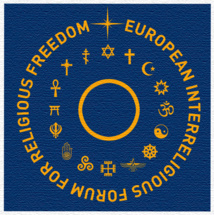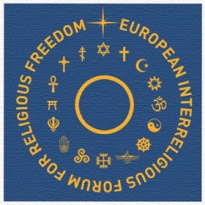
1. There is no State discretion in assessing the legitimacy of beliefs. Articles 9 ECHR and 10 EU Charter of Fundamental Rights establish the right to freedom of thought, conscience and religion. The European Court of Human Rights has established and constantly held that ‘the right to freedom of religion as guaranteed under the Convention excludes any discretion on the part of the State to determine whether religious beliefs or the means used to express such beliefs are legitimate.(1)
2. Respect of religious diversity. European law respects and promotes diversity of religious as well as non religious worldviews (22 EU Charter of Fundamental Rights). Law should be enforceable without requiring anyone to embrace or identify with any ideological or religious worldview. The European Court of Human Rights has condemned Spain in the case of six Spanish who were forcibly transferred to a hotel by Catalan police officers and handed over to others to be ‘deprogrammed’ from their membership of a ‘sect’ of which they were alleged to be members, based on the denunciation by a Spanish anti-sect association.(2)
3. Strict scrutiny of admissible restrictions to the expression of beliefs. A religious or non-religious belief in the forum externum can only be restricted subject to very strict conditions set at article 9.2.(3)
4. State neutrality and impartiality. The State has an obligation of neutrality and impartiality towards all beliefs. The European Court of Human Rights has established that ‘the State’s role as the neutral and impartial organiser of the practising of the various religions, denominations and beliefs is conducive to religious harmony and tolerance in a democratic society.(4)
5. Specialty of religion recognized for the sake of its protection and enhancement only. The law can only single out religions and denominations or categories or religions and denominations for the purpose of enhancing their protection or in order to facilitate them.
6. No religion-based discrimination. European law does not allow for discrimination based on religion (5).The European Court of Human Rights has concluded recently that an applicant had been discriminated against on the basis of his religious convictions (as a member of a small faith community) in the exercise of his right to respect for family life, since he had been denied his access rights based on an expert opinion upheld by a domestic court according to which the applicant’s ‘irrational worldview made him incapable of bringing up his child.(6)
7. Religion-related crimes are better repressed through general criminal law. No exception has been accepted to the principle that crimes or violations committed with an alleged religious motivation or under the cloak of religion are adequately repressed through general criminal law.
8. Religious autonomy. European Law recognizes ‘religious autonomy (7), which can be defined as the ‘competence of religious communities to decide upon and administer their own affairs without governmental interference’.
9. Parental religious rights. Article 2 Protocol 1 to the ECHR stipulates that ‘in the exercise of any functions which it assumes in relation to education and to teaching, the State shall respect the right of parents to ensure such education and teaching in conformity with their own religious and philosophical convictions’. This right can be restricted only if children suffer or are likely to suffer an actual harm. Actual harm has to be strictly defined. The mere transmission within the family of a worldview, which differs from the worldview of the majority does not per se legitimize the State’s interference in the interest of the children. As the European Court of Human Rights has made clear, a distinction between parents ‘based essentially on a difference in religion alone is not acceptable.(8)
10. Objective, critical and pluralistic public school. As established by the ECtHR since 1976 and repeatedly reiterated, ‘the State, in fulfilling the functions assumed by it in regard to education and teaching, must take care that information or knowledge included in the curriculum is conveyed in an objective, critical and pluralistic manner. The State is forbidden to pursue an aim of indoctrination that might be considered as not respecting parents’ religious and philosophical convictions. That is the limit that must not be exceeded.(9)
2. Respect of religious diversity. European law respects and promotes diversity of religious as well as non religious worldviews (22 EU Charter of Fundamental Rights). Law should be enforceable without requiring anyone to embrace or identify with any ideological or religious worldview. The European Court of Human Rights has condemned Spain in the case of six Spanish who were forcibly transferred to a hotel by Catalan police officers and handed over to others to be ‘deprogrammed’ from their membership of a ‘sect’ of which they were alleged to be members, based on the denunciation by a Spanish anti-sect association.(2)
3. Strict scrutiny of admissible restrictions to the expression of beliefs. A religious or non-religious belief in the forum externum can only be restricted subject to very strict conditions set at article 9.2.(3)
4. State neutrality and impartiality. The State has an obligation of neutrality and impartiality towards all beliefs. The European Court of Human Rights has established that ‘the State’s role as the neutral and impartial organiser of the practising of the various religions, denominations and beliefs is conducive to religious harmony and tolerance in a democratic society.(4)
5. Specialty of religion recognized for the sake of its protection and enhancement only. The law can only single out religions and denominations or categories or religions and denominations for the purpose of enhancing their protection or in order to facilitate them.
6. No religion-based discrimination. European law does not allow for discrimination based on religion (5).The European Court of Human Rights has concluded recently that an applicant had been discriminated against on the basis of his religious convictions (as a member of a small faith community) in the exercise of his right to respect for family life, since he had been denied his access rights based on an expert opinion upheld by a domestic court according to which the applicant’s ‘irrational worldview made him incapable of bringing up his child.(6)
7. Religion-related crimes are better repressed through general criminal law. No exception has been accepted to the principle that crimes or violations committed with an alleged religious motivation or under the cloak of religion are adequately repressed through general criminal law.
8. Religious autonomy. European Law recognizes ‘religious autonomy (7), which can be defined as the ‘competence of religious communities to decide upon and administer their own affairs without governmental interference’.
9. Parental religious rights. Article 2 Protocol 1 to the ECHR stipulates that ‘in the exercise of any functions which it assumes in relation to education and to teaching, the State shall respect the right of parents to ensure such education and teaching in conformity with their own religious and philosophical convictions’. This right can be restricted only if children suffer or are likely to suffer an actual harm. Actual harm has to be strictly defined. The mere transmission within the family of a worldview, which differs from the worldview of the majority does not per se legitimize the State’s interference in the interest of the children. As the European Court of Human Rights has made clear, a distinction between parents ‘based essentially on a difference in religion alone is not acceptable.(8)
10. Objective, critical and pluralistic public school. As established by the ECtHR since 1976 and repeatedly reiterated, ‘the State, in fulfilling the functions assumed by it in regard to education and teaching, must take care that information or knowledge included in the curriculum is conveyed in an objective, critical and pluralistic manner. The State is forbidden to pursue an aim of indoctrination that might be considered as not respecting parents’ religious and philosophical convictions. That is the limit that must not be exceeded.(9)
1 ECtHR, Manoussakis and ors v Greece, 29 August 1996, at para 47
2 ECtHR, Riera Blume and ors v Spain, 14 October 1999
3 ECtHR, Handyside v UK, 7 December 1976, at para 49
4 ECtHR, Refah Partisi v Turkey, 31 July 2001, at para 51
5 Article 14 ECHR, 21 EU Charter of Fundamental Rights and 10 TFEU
6 ECtHR, Vojnity v Hungary, 12 February 2013, at para 14
7 See ECtHR, Fernandez Martinez, 15 May 2012, at para 80
8 ECtHR, Hoffmann v Austria, 23 June 1993, at para 36
9 ECtHR, Kjeldsen, Busk Madsen and Pedersen v Denmark, 7 December 1976, at para 53







 More than 100 NGOs and personalities write to French Parliamentarians about the law on cults
More than 100 NGOs and personalities write to French Parliamentarians about the law on cults